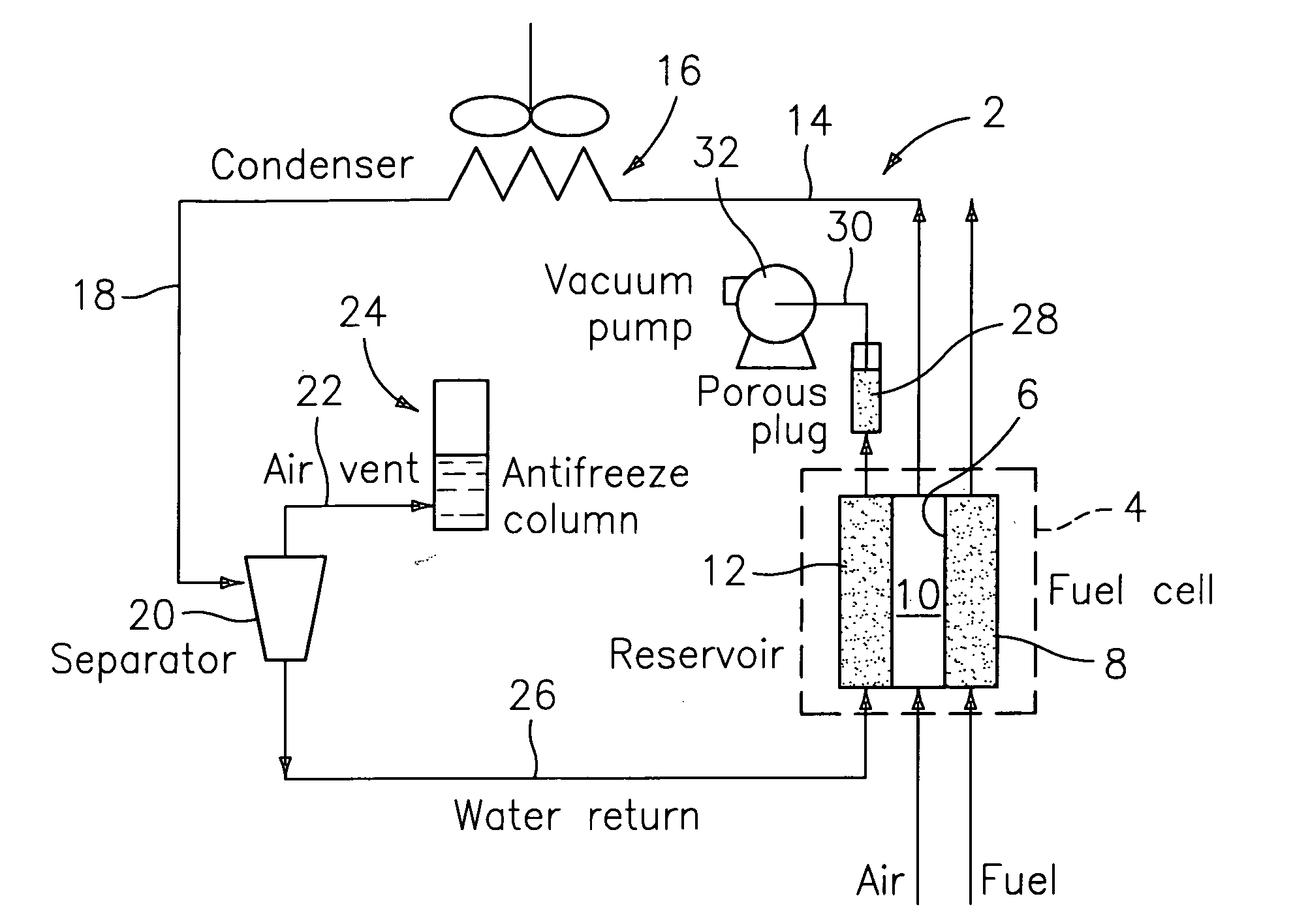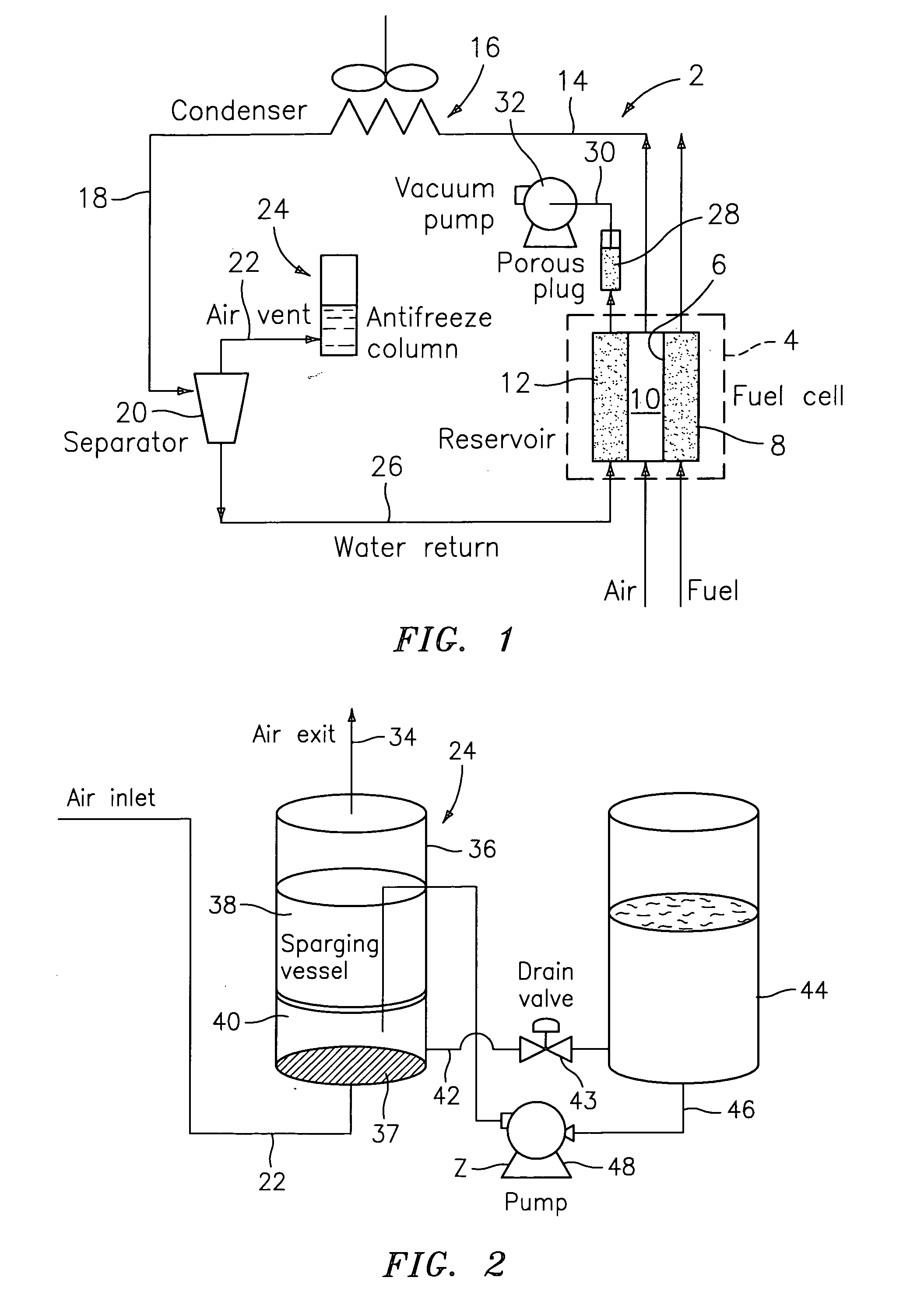Non-circulating coolant PEM fuel cell power plant with antifreeze back pressure air venting system
a fuel cell power plant and back pressure technology, applied in emergency supply, electrical generators, sustainable buildings, etc., can solve the problems of increasing system complexity and cost, forcing the shut down of the system and power plant, etc., and achieve the effect of improving heat rejection from the system
- Summary
- Abstract
- Description
- Claims
- Application Information
AI Technical Summary
Benefits of technology
Problems solved by technology
Method used
Image
Examples
Embodiment Construction
[0015]Referring now to the drawings, FIG. 1 is a schematic view of a PEM cell subassembly part denoted generally by the numeral 2 of a fuel cell power plant formed in accordance with this invention. The fuel cell 4 includes a catalyzed polymer electrolyte membrane 6 which is interposed between a fuel reactant flow field 8 (the anode side) and an oxidant reactant flow field 10 (the cathode side). A coolant flow field 12 is disposed adjacent to the cathode side 10 of the fuel cell 4, however, the coolant flow field 12 could be positioned closer to the anode side 8 of the cell 4. The coolant flow field 12 contains a non-circulating aqueous coolant that serves to cool the PEM cell subassembly 2 so as to maintain the proper operating temperature of the fuel cell 4. During the reaction, the hydrogen in the fuel and the oxygen in the air are converted to electrons and product water. Some of this product water is evaporated from the coolant flow field, in the form of water vapor, into the o...
PUM
| Property | Measurement | Unit |
|---|---|---|
| pressures | aaaaa | aaaaa |
| height | aaaaa | aaaaa |
| pressure | aaaaa | aaaaa |
Abstract
Description
Claims
Application Information
 Login to View More
Login to View More - R&D
- Intellectual Property
- Life Sciences
- Materials
- Tech Scout
- Unparalleled Data Quality
- Higher Quality Content
- 60% Fewer Hallucinations
Browse by: Latest US Patents, China's latest patents, Technical Efficacy Thesaurus, Application Domain, Technology Topic, Popular Technical Reports.
© 2025 PatSnap. All rights reserved.Legal|Privacy policy|Modern Slavery Act Transparency Statement|Sitemap|About US| Contact US: help@patsnap.com


